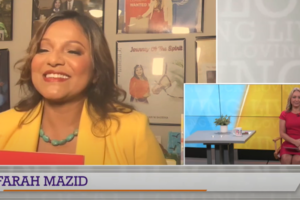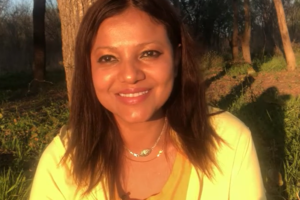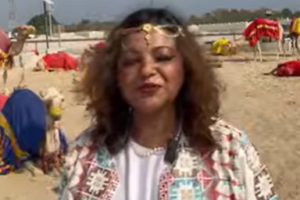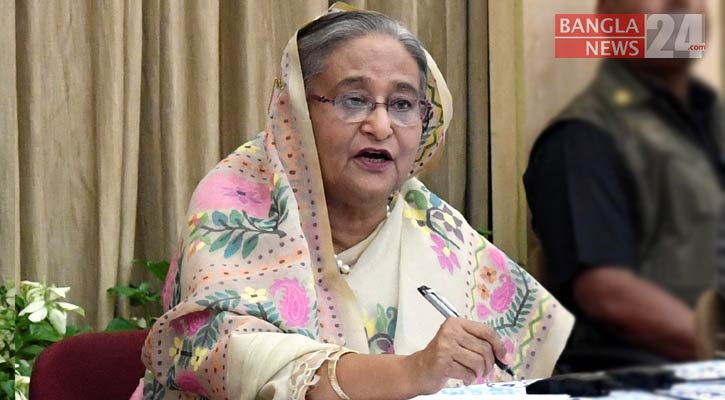A grand jury indicted a former Louisville police officer Wednesday for wanton endangerment during a botched drug raid that led to the death of Breonna Taylor in March. No charges were announced against the other two officers who fired shots, and no one was charged for causing her death.
The three-count indictment concerns Brett Hankison, a detective at the time, who fired into the sliding glass patio door and window of Taylor’s apartment building, both of which were covered with blinds, in violation of a department policy that requires officers to have a line of sight. He is the only one of the three officers who was dismissed from the force, with a termination letter stating that he showed “an extreme indifference to the value of human life.”
In a news conference following the announcement of the grand jury’s decision, Kentucky’s attorney general, Daniel Cameron, said, “The decision before my office is not to decide if the loss of Breonna Taylor’s life was a tragedy — the answer to that question is unequivocally yes,” he said.
He later added, “I know that not everyone will be satisfied. Our job is to present the facts to the grand jury, and the grand jury then applies the facts,” he said, adding: “If we simply act on outrage, there is no justice — mob justice is not justice. Justice sought by violence is not justice. It just becomes revenge.”
The decision came after more than 100 days of protests and a monthslong investigation into the death of Taylor, a 26-year-old emergency room technician who was shot five times in the hallway of her apartment by officers executing a search warrant.
Because the officers did not shoot first — it was the young woman’s boyfriend who opened fire; he has said he mistook the police for intruders — many legal experts had thought it unlikely the officers would be indicted in her death.
Taylor’s name and image have become part of a national movement over racial injustice, with celebrities writing open letters and erecting billboards demanding that the white officers be criminally charged for the death of a young Black woman. City and state officials feared that a grand jury decision not to prosecute the officers would inflame a city that has been roiled by demonstrations that have sometimes turned violent.
Taylor’s mother sued the city of Louisville for wrongful death and received a $12 million settlement last week. But she and her lawyers have insisted that nothing short of murder charges for all three officers would be enough, a demand taken up by thousands of protesters in Kentucky and across the country.
Many legal experts said that indictments would be unlikely, given the state’s statute allowing citizens to use lethal force in self-defence. John W. Stewart, a former assistant attorney general in Kentucky, said he believed that at least two of the officers who opened fire were protected by that law.
Kentucky Attorney General Daniel Cameron addresses a news conference in Frankfort, Ky., on Wednesday, Sept. 23, 2020, announcing that a grand jury indicted former Louisville police officer Brett Hankison with wanton endangerment for his actions on the night of the shooting that killed Breonna Taylor. The decision came after more than 100 days of protests and a months long investigation into the death of Taylor, a 26-year-old emergency room technician who was shot in the hallway of her apartment by officers executing a search warrant. (Whitney Curtis/The New York Times)Kentucky Attorney General Daniel Cameron addresses a news conference in Frankfort, Ky., on Wednesday, Sept. 23, 2020, announcing that a grand jury indicted former Louisville police officer Brett Hankison with wanton endangerment for his actions on the night of the shooting that killed Breonna Taylor. The decision came after more than 100 days of protests and a months long investigation into the death of Taylor, a 26-year-old emergency room technician who was shot in the hallway of her apartment by officers executing a search warrant. (Whitney Curtis/The New York Times)“As an African American, as someone who has been victim of police misconduct myself, getting pulled over and profiled, I know how people feel,” Stewart said. “I have been there, but I have also been a prosecutor, and emotions cannot play a part here.”
Two officers, Sgt. Jon Mattingly and Detective Myles Cosgrove, returned fire in the direction of Taylor’s boyfriend, Kenneth Walker, according to internal documents. In the chaos that ensued, Mattingly was shot, injuring the femoral artery in his leg, and the others scrambled to drag him out of the apartment and apply a tourniquet to his leg.
In Louisville, protesters erupted in anger over the grand jury’s decision.
Protesters gathered in downtown Louisville shrieked in disgust after the charges in the Breonna Taylor case were announced. They were particularly upset that the only officer charged was required to post a bond of just $15,000.
After the announcement, which the protesters listened to live, ended with only one officer charged, people yelled, “That’s it?”
Some people swore. One person called for the crowd to burn the city down. Several people sobbed and had to be consoled.
“It tells people, cops can kill you in the sanctity of your own home,” Linda Sarsour, a Palestinian American activist, said as she wiped tears from her face.
Protesters started marching through the streets shortly after the decision was announced, as a helicopter buzzed overhead.
For about 10 minutes, a group of about 150 protesters blocked the intersection of Broadway and Sixth Street, just outside the barricade.
Protesters argued with angry drivers who had their way blocked. Most cars turned around at the direction of the protesters who stood in their way.
Within minutes, more than a dozen police officers arrived, and the protesters continued down Broadway.
Block by block, the police caravan followed. Some, armed with assault rifles, stood by their vehicles.
Other cities are bracing for protests.
In anticipation of the grand jury’s decision, Louisville police officers placed barricades around downtown this week to reduce access to the area, and Robert J. Schroeder, the city’s interim police chief, told officers that he would not approve any requests for time off.
“We all know something is coming,” Schroeder said Tuesday. “We don’t know what it is.”
Mayor Greg Fischer, a Democrat, issued a state of emergency order Tuesday in anticipation of possible “civil unrest” following the announcement of the grand jury decision by the Kentucky attorney general. A local judge also signed an order shutting down the federal courthouse in downtown.
Fischer said on Twitter that the restrictions on the city’s downtown were to keep people safe while allowing for possible protests.
Anger over Taylor’s killing has spread far from Louisville, and Gov. J.B. Pritzker of Illinois indicated this week that he was also preparing for the grand jury’s decision. A spokeswoman for Pritzker said that he had spoken to Mayor Lori Lightfoot of Chicago and had asked the state’s National Guard to be ready for the possibility of demonstrations in Illinois.
Police officers with a ‘no-knock’ warrant broke down Taylor’s door.
The officers who broke down Taylor’s door shortly after midnight March 13 had come with a search warrant, signed by a local magistrate. They had court approval for a “no-knock” warrant, which Louisville has since banned, but the orders were changed before the raid, requiring them to knock first and announce themselves as the police.
Walker has said that he and Taylor did not know who was at her door. Only one neighbour, out of nearly a dozen, reported hearing the officers shout “police” before entering.
The warrant for Taylor’s apartment was one of five issued in a case involving her ex-boyfriend Jamarcus Glover, who is accused of running a drug trafficking syndicate. At the other addresses that were searched, officers found a table covered in drugs packaged for sale, including a plastic sachet containing cocaine and fentanyl, police logs and a laboratory report show.
In anticipation of a grand jury’s decision in the Breonna Taylor case, barricades were place around downtown Louisville, Ky., Tuesday, Sept. 22, 2020. On Wednesday, a grand jury indicted former Louisville police officer Brett Hankison on charges of wanton endangerment for his actions on the night of the shooting that killed Breonna Taylor in March. (Xavier Burrell/The New York Times)In anticipation of a grand jury’s decision in the Breonna Taylor case, barricades were place around downtown Louisville, Ky., Tuesday, Sept. 22, 2020. On Wednesday, a grand jury indicted former Louisville police officer Brett Hankison on charges of wanton endangerment for his actions on the night of the shooting that killed Breonna Taylor in March. (Xavier Burrell/The New York Times)The surveillance leading police officers to Taylor’s home included a GPS tracker showing repeated trips by Glover to her home; photographs of him emerging from her apartment with a package in his hands; footage showing her in a car with Glover arriving at one of the trap houses he operated; and his use of her address on bank records and other documents. The FBI has opened an investigation into whether the inclusion of her name and address on the warrant violated her civil rights, as her family’s lawyers have claimed.
Taylor’s death became a Black Lives Matter rallying cry.
For months, Taylor’s death has been a rallying cry. Michelle Obama and Kamala Harris, the Democratic vice-presidential nominee, called out her name during the Democratic National Convention. Oprah Winfrey paid for billboards demanding the officers be charged, writing in her magazine, “We have to use whatever megaphone we can.”
Frustration has mounted in Louisville at the pace of the investigation into the fatal shooting. That frustration has been compounded by a city administration that refused to release basic records — including her autopsy and the body camera footage of officers who responded to the shooting — and that made inexplicable errors in some of the documents it did release, including a report incorrectly claiming that she had not been injured and that the door to her apartment was never breached.
Cameron, a Republican attorney general who ran on a law-and-order platform, had to navigate both the demands of protesters and the constraints of the law, said Frank Mascagni III, a former assistant commonwealth’s attorney in Louisville.
“My city is going to blow up if these three men are not charged,” said Mascagni, who believes that the officers’ actions are protected under the law. “I’m very nervous for what I think is going to occur.”
Who are the four officers involved in the Taylor case?
Sgt. Jon Mattingly, 47, a 20-year veteran of the Louisville Metro Police Department, had spent the last four years in the narcotics division.
After officers knocked down the door to Taylor’s apartment, Mattingly was the first officer to step inside. According to a statement he gave to investigators, he said that he saw a male and a female figure standing at the end of a hallway.
The male figure, who was Taylor’s boyfriend, Walker, was standing with his hands stretched out, holding a gun, Mattingly said. “My mind’s going, this ain’t right.”
When Walker fired, Mattingly said, he felt a sensation of heat in his leg and then returned fire six times, stumbling over and falling. He had been hit in the femoral artery, with the bullet tearing through his thigh and exiting out the back, according to his statement.
Detective Myles Cosgrove, 42, has been with the Police Department for more than 15 years, including the last three in the narcotics division.
He was the second person inside Taylor’s apartment after an officer with a battering ram tore the door of its hinges, and returned fire down the hallway after Walker shot in the direction of the officers. It’s unclear how many rounds Cosgrove fired.
Detective Brett Hankison, 44, had been an officer with the department since 2003 and was assigned to the narcotics division. He is the only one of the three officers who opened fire that night with a history of complaints of excessive force, as well as allegations of sexual misconduct.
According to a review of his personnel file obtained by The New York Times, nearly all of the complaints against him were dismissed or deemed not credible. But one record in his file showed he was reprimanded at least three times, including for causing a car wreck in 2016 that fractured the spine of another officer.
During the shooting, Hankison was initially positioned behind other officers, but after Walker opened fire, he ran out of the breezeway into the parking lot and fired at least 10 rounds into the sliding-glass door and window of Taylor’s apartment.
He is the only one of the three officers who was fired and charged. The police chief at the time said in a public termination letter that Hankison’s actions “were a shock to the conscience,” and a violation of department policy because he fired without a line of sight, through the covered window and door, which were obscured by blinds.
Detective Joshua Jaynes, 38, has been with the Police Department since 2006 and had recently been assigned to the new Place-Based Investigations Unit, which was created in December 2019.
He prepared the five search warrant affidavits for simultaneous no-knock raids at locations suspected of playing a role in the local drug trade, including Taylor’s apartment. Lawyers for Taylor have said that the information tying her apartment to the drug trafficking syndicate was flawed and insufficient.
In the search warrant application, Jaynes claimed that he had spoken to the postal inspector and had confirmed that parcels suspected of being part of the drug trade were being sent to Taylor’s apartment by an ex-boyfriend.
But Jaynes did not speak directly to the postal inspector himself; he had relied on a neighbouring police department to do so, because the Louisville Metro Police Department had a strained relationship with the postal inspector.
Jaynes was placed on administrative reassignment in June amid the investigation into Taylor’s death, The Louisville Courier Journal reported.






















